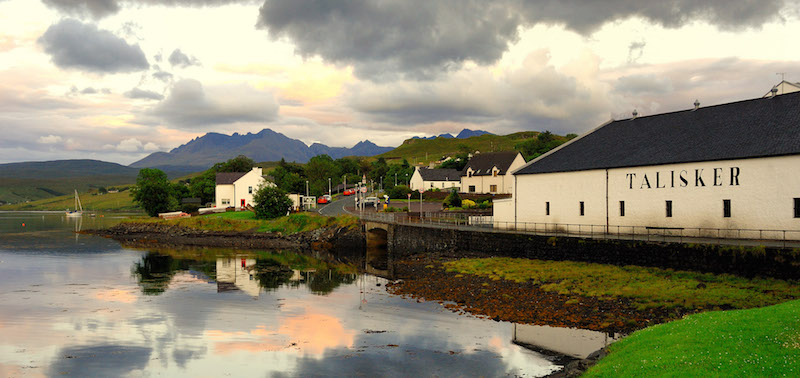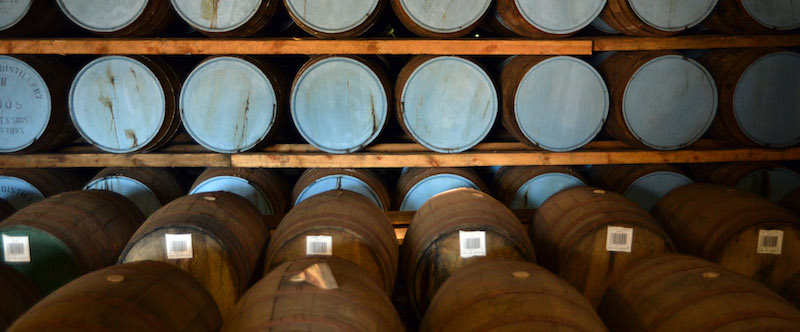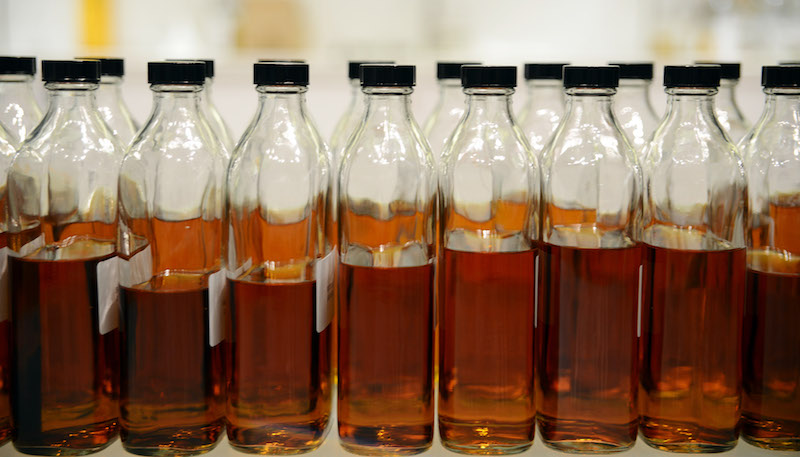As we finally recover from the colder weather in the UK, there is a parallel with the chilly investment market. Whisky warms not only the cockles on a cold day, but as the market for alternative investments has heated up, whisky offers potential in this arena too. Colin Hampden-White gives us the lowdown on how to invest in whisky…
Investing in whisky
There are two principle ways to invest in whisky: one is to invest in bottles. These can be old or new bottles, and the brand or distillery of bottle is important. Then come casks of whisky. In the case of casks, the distillery from which the whisky comes is of lesser importance. A good return, between 10% – 15%, can be made from whisky casks from almost any distillery, as the blended whisky market always needs them.
Investing in bottles of whisky
The challenge with bottles is that it’s difficult to invest serious money as you need an awful lot of them to make it worth investing at all. Finding the right bottles, at auction or new releases, takes time and expertise and even then, a return is not guaranteed and you really need to know your shallots from your onions.

Photo credit: Colin Hampden-White. Talisker
Investing in whisky casks
Casks are a different prospect. As blenders will always need whisky, there is a stronger market for casks. Scotch whisky casks are a simple asset, held in bond in Scotland and no duty is levied whilst it stays in bond. As whisky is considered a depreciating asset, there is no capital gains payable on its sale. So how does one buy the right casks? Diversity is the key to good investment portfolio. Casks can be bought freshly-filled to well-aged. A cask at zero age is called a ‘new fill cask’. The liquid is called ‘new make spirit’ and will legally become whisky after three years and a day. Casks can also be bought at any age beyond. The casks become more expensive as they gain maturity and the rate of return grows exponentially the older it gets.
Another consideration is the type of oak the whisky is stored in. Whisky can be stored in what is known as a first fill a refill or a rejuvenated cask. Think of the cask like a tea bag. The first fill is like an unused tea bag which gives out lots of flavour. The refill is a lightly-dunked tea bag. This takes longer to impart flavour to the whisky. Whisky in a first fill cask may be very good for a return on a young whisky, say up to twelve years old. When buying an older cask, a refill will be much better. An old first fill cask may make the whisky taste too woody.

Photo credit: Colin Hampden-White.
There are blended whiskies that like to have a good percentage of rejuvenated casks. These are much-used casks whose surface wood has little flavour left, so a couple of millimetres are shaved off the inside to expose active wood, ready for reuse. They have a different flavour profile, impart flavour at a similar rate to a first fill cask, so blenders can use the whisky earlier and they are less expensive.
Lastly there are two types of oak cask: European oak and American oak, providing the whisky with different flavours. American oak gives vanilla, coconut and sweeter flavours whilst European oak gives spicy and nutty flavours. European oak casks are much rarer in the industry and are more sought after. They are more expensive, but can give a great rate of return. Around 90% of the Scotch market uses American oak casks and 90% of Scotch sold around the world is blended whisky. So whisky from a European oak cask (ex-Sherry for example) is a sound bet. If the whisky is sold to an independent bottler rather than for blending, and perhaps further maturing before bottling, then a first fill European oak cask would be more desirable.
How do you find whisky casks to buy?
In general terms, the best investment would be a range of casks including new make and aged casks in a mixture of American and European oak. If you’re buying a very old cask or wanting a longer term investment, I would suggest a re-fill cask. So how and where do you find and buy casks? You can’t just rock up to a distillery and pop a cask in the boot. Whisky brokers only deal with the industry, however there are companies who can buy from brokers and do deal with private investors. Of course, you can find brokers on the internet. But for reliability of service and quality of product, you might look at The Whisky Market Ltd. I have been in the whisky industry for many years and have consulted to them for over five years, so they understand the market well.
So settle down one evening with a dram that’s old enough to vote and contemplate owning more than just a bottle or two. Here are some specialist recommendations:
Retail: thewhiskyexchange.com
Auction: scotchwhiskyauction.com
Cask sales: thewhiskymarketltd.com
